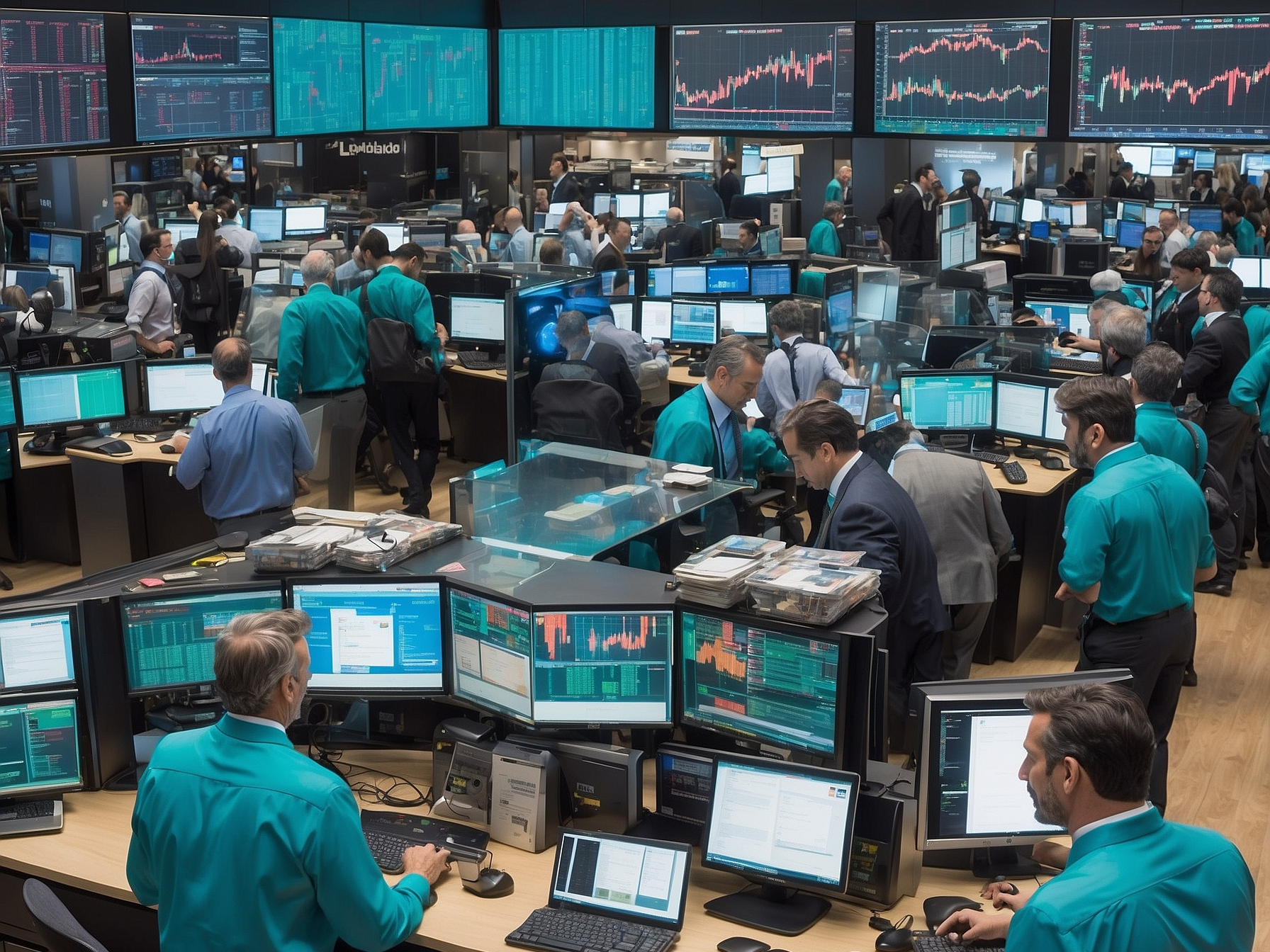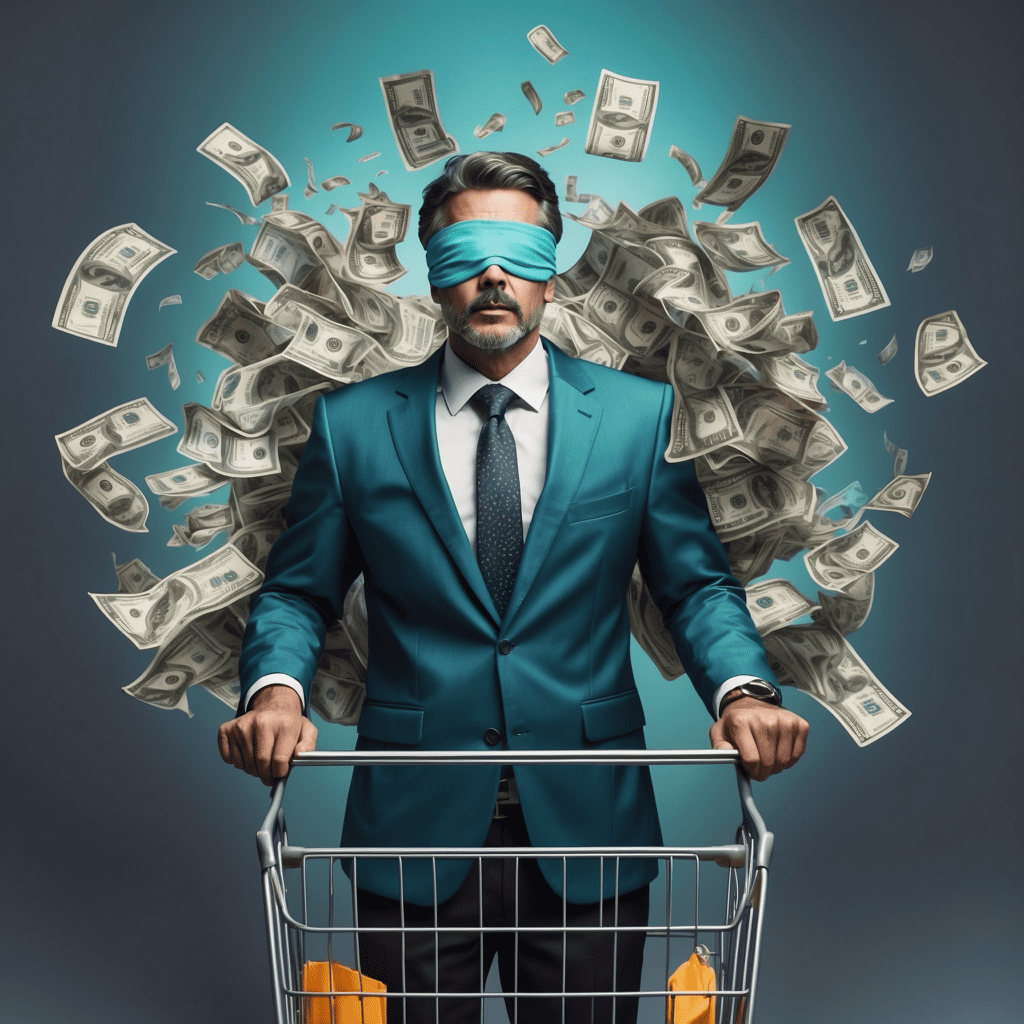Ever wondered what happens when the government takes a step back and lets the economy run wild? Welcome to the free market economy! It’s an economic system where prices of goods and services are determined by the age-old dance of supply and demand—no government meddling, no strings attached. One of the standout characteristics of a free market economy is that it operates without Uncle Sam constantly peeking over your shoulder.
But wait, what’s the alternative? Enter the regulated market—a place where the government swoops in with taxes, regulations, and a whole lot of red tape to control supply and demand. Sounds thrilling, right? In a free market economy, none of that buzzkill exists. Prices are set solely by the bids and offers of buyers and sellers like you and me. In this rollercoaster of an article, we’ll dive deep into what a free market economy is, its key characteristics, and the effects it has on all of us.

Related: Disadvantages of Free Enterprise Economy
What is a Free Market Economy?
A free market economy—also known as free enterprise—is like the wild west of economic systems. It’s based on supply and demand doing their own thing with little to no government intervention. This economic playground is characterized by a spontaneous and decentralized order where individuals make their own economic decisions. Think of it as everyone bringing their best game to the table without a referee blowing the whistle every two seconds.
In other words, a free market economy is an unregulated system of economic exchange. No quality controls, no hefty taxes, no quotas or tariffs—just pure, unadulterated market action. It’s all about voluntary contracts, private property rights, and a competitive bidding war for goods and services. Quite the contrast from systems like communism, where the government owns the playground, the toys, and decides who gets to play.
Now, when you strip away central planning, a free market economy tends to produce capitalism. Surprise, surprise! Although, it’s entirely possible to see voluntary socialism or even agrarianism sprout up. In Western countries, free markets are usually linked with laissez-faire capitalism and libertarian philosophies—the “live and let live” crowd. But hold your horses—a free market economy isn’t exactly the same as capitalism.
See also: Free Enterprise Benefits
Examples of Free Market Economy Countries
Alright, let’s take a world tour of countries that are acing the free market game. From ‘mostly free’ to ‘moderately free,’ these nations are embracing the wild ride of economic freedom. Buckle up!
- Australia
- Austria
- Bahamas
- Barbados
- Belgium
- Bulgaria
- Canada
- Chile
- Czech Republic
- Cyprus
- Denmark
- Estonia
- Finland
- Georgia
- Germany
- Iceland
- Ireland
- Israel
- Italy
- Japan
- Latvia
- Lithuania
- Luxembourg
- Malta
- Netherlands
- New Zealand
- Norway
- Poland
- Portugal
- Singapore
- South Korea
- Slovenia
- Sweden
- Switzerland
- Taiwan
- United Arab Emirates
- United Kingdom
- United States
- Uruguay
So, what’s so special about these countries? According to the Heritage Foundation’s 2022 Index of Economic Freedom, as of June 2022, Singapore is the superstar, ranking first at a jaw-dropping 84.4% economically free. With ultra-low tax rates, a capitalist powerhouse of an economy, and minimal regulations, it’s the poster child for how a free market economy can fuel growth.
Not far behind is Switzerland at 84.2%, followed by Ireland at 82.0%. Both nations boast minimal tariffs and strong protections for private property rights. They’re basically the honor roll students of the economic class.
New Zealand deserves a shout-out too, ranking fourth at 80.6% free. The country offers businesses a breezy environment with few regulatory hurdles—like a breath of fresh air for entrepreneurs.
Rounding out the top ten are free-market champs like Taiwan, Luxembourg, Estonia, the Netherlands, Denmark, and Finland. And what about the United States, you ask? Despite being one of the world’s most advanced financial markets, it scores a 72.1% economic freedom rating, landing at 25th place. Looks like there’s room for improvement, America!
On the flip side, countries like Zimbabwe, Sudan, Cuba, Venezuela, and North Korea are chilling at the bottom of the list—the “least free” economies. Not exactly hotspots for your next business venture.
Read also: Arguments Against Capitalism
What are the Characteristics of a Free Market Economy?
So, what makes a free market economy tick? Let’s break down the core ingredients that make this economic cocktail so potent:
- Limited Role of Government: The government plays the role of a referee, not a player. No micromanaging here!
- Demand and Supply: consumers dictate the demand, businesses adjust the supply.
- Freedom to Choose Businesses: You’re free to start that llama grooming business you’ve always dreamed of. No one’s stopping you.
- Right to Private Property: What’s yours is yours. Private property rights are sacred.
- Profits as an Incentive: Making money isn’t just okay—it’s the name of the game.
- Competition: Businesses duke it out to win over consumers. Think of it as the Olympics of economics.
- Consumer Sovereignty: The customer is king, queen, and the entire royal court. Your wish is their command.
- Voluntary Exchange: Trade happens because both parties want it to. No arm-twisting involved.
In a free market, individuals participate in economic activities for personal gain. See a need? Start a business to fill it. Looking for a job? Join a company that’s making waves. Want the latest gadget? Buy it from the business that’s hustling the hardest. Every stage depends on someone being motivated to act and reap the benefits of their efforts.
So, the competition to sell the most products, earn the highest wages, and improve personal living standards drives everyone involved. It’s like a never-ending race where the finish line keeps moving, and everyone wants a piece of the pie.

Limited Role of Government
In a free market, the government’s role is, well, limited. They’re not telling you what to produce or how much to charge. Instead, they ensure that individual rights are protected, contracts are enforced, and no funny business like fraud or coercion is going on. Think of them as the impartial referee making sure everyone plays fair—no more, no less.
This means entrepreneurs aren’t bogged down by excessive bureaucracy or restrictive policies. You have the freedom to innovate, take risks, and respond directly to market demands without Uncle Sam breathing down your neck.
Demand and Supply
Ah, the classic tango of supply and demand. In a free market, prices are determined by how much people want something (demand) and how much of it is available (supply). No mysterious forces, no governmental price-setting—just the raw interplay of market forces.
Here’s the kicker: if buyers are willing to pay more than the equilibrium price, sellers get a bonus (producer surplus). If sellers offer goods for less than the equilibrium price, buyers snag a deal (consumer surplus). It’s capitalism in its purest form, and it’s how a free market finds its sweet spot.
Consumer Sovereignty
In this economic playground, the consumer is the boss. Seriously. What you choose to buy (or not buy) signals to producers what’s hot and what’s not. If a product is in high demand but short supply, prices go up. If it’s the other way around, prices drop. Businesses that ignore consumer preferences do so at their own peril—it’s adapt or die.
Economic Freedom
Economic freedom is the heartbeat of a free market economy. You’re free to pursue financial gains however you see fit—start a business, invest in stocks, seek employment where you want, or even quit your job to start a pineapple farm. No one’s holding you back.
This freedom extends to consumers, too. You decide what to buy, who to buy it from, and how much you’re willing to pay. It’s economic democracy at its finest.
Right to Private Property
In a free market economy, you have the right to own property—land, buildings, intellectual property—you name it. This isn’t just about having a place to hang your hat; it’s about having control over assets that can generate income and wealth. Private property rights are the cornerstone that allows markets to function efficiently.
Profit Motive
Let’s not kid ourselves—the profit motive is a massive driving force here. Businesses operate to make money, plain and simple. This isn’t greed; it’s incentive. The possibility of financial gain motivates people to innovate, improve, and strive for efficiency. It’s the engine that keeps the economy humming.
Competition
Competition is the spice of life—and of the free market. Businesses vie for your attention and dollars, pushing them to improve products, cut prices, and offer better services. This rivalry benefits consumers and keeps companies on their toes. It’s survival of the fittest, economic edition.
Voluntary Exchange
In the free market, all transactions are voluntary. No one’s forcing you to buy that questionable diet pill or to sell your beloved vintage guitar collection. Trade happens because both parties believe they’re getting a good deal. This mutual benefit is what makes the market efficient and responsive.
Related: Free Enterprise Characteristics
Free Market Economy Effects
So, what happens when a country embraces a free market economy? Let’s dish out the good, the bad, and the downright ugly effects:
- Faster and More Responsive Markets
- Greater Economic Growth
- Limited Goods or Services to Consumers
- Efficiency
- Destabilization
- Inequality
- Public Goods Tend to Suffer
- Unfavorable Activities Due to Profit Prioritization
- Severe Economic Downturns
Faster and More Responsive Markets
In a free market economy, change is the only constant. Markets adjust quickly to new conditions because there’s no bureaucratic red tape to cut through. If consumers suddenly crave avocado toast, you can bet farmers will start planting more avocados ASAP. It’s agility at its finest.
Greater Economic Growth
When profit is the prize, people hustle. The competition and innovation spurred by the profit motive often lead to significant economic growth. More businesses, more jobs, more wealth—it’s a win-win. Countries like the U.S. have historically enjoyed higher growth rates thanks to their (mostly) free market economies.
Limited Goods or Services to Consumers
But it’s not all sunshine and rainbows. If something isn’t profitable, chances are it won’t be produced. That means some goods or services—especially those that serve the greater good but don’t line pockets—might be in short supply. Rural areas might miss out on services like high-speed internet because it’s just not worth the investment for companies.

Efficiency
Competition forces businesses to be efficient. If you can produce better quality at a lower cost, you gain a competitive edge. Inefficient companies either adapt or exit the market. It’s harsh but effective—like a personal trainer who doesn’t care about your excuses.
Destabilization
On the flip side, the relentless pursuit of profit can lead to market instability. Without regulation, companies might engage in risky behaviors that could lead to economic downturns. Remember the 2008 financial crisis? Yeah, that wasn’t exactly a highlight reel for the free market.
Inequality
Inequality is almost inevitable in a free market system. Those who start with advantages—wealth, education, connections—tend to accumulate more wealth over time. The rich get richer, and the gap between the haves and have-nots widens. It’s a tough pill to swallow.
Public Goods Tend to Suffer
Because there’s no profit in it, public goods like parks, roads, and clean air often get neglected. Companies aren’t lining up to invest in something that doesn’t boost their bottom line. Without government intervention, these essential services can deteriorate.
Unfavorable Activities Due to Profit Prioritization
When profit is king, some businesses might cut corners—think environmental shortcuts, worker exploitation, or shady financial practices. The lack of regulation can make it easier for unethical behavior to slip through the cracks.
Severe Economic Downturns
Free markets can be volatile. Without safety nets or regulatory oversight, economic downturns can be severe. Businesses fail, unemployment rises, and recovery can take a while. It’s like riding a roller coaster without a seatbelt—not for the faint-hearted.
Read also: Importance of Free Market
Wrapping It Up
The free market economy is a double-edged sword. It offers unparalleled economic freedom, fosters innovation, and can lead to impressive economic growth. But it also has its pitfalls—inequality, market instability, and neglect of public goods. Understanding both the advantages and disadvantages of a free market economy is crucial for anyone looking to navigate this complex system.
So, whether you’re a solopreneur plotting your next big move, a startup founder ready to disrupt the market, or just someone curious about how this whole economic system works, knowing the ins and outs of the free market economy is your ticket to playing the game—and maybe even winning it.
